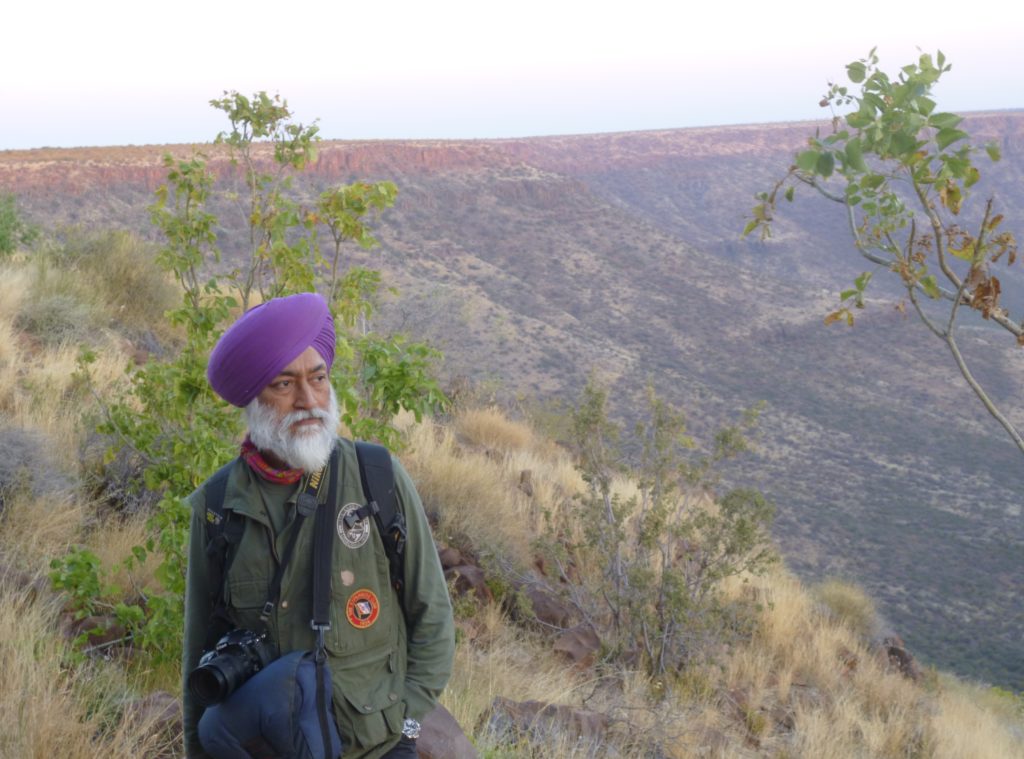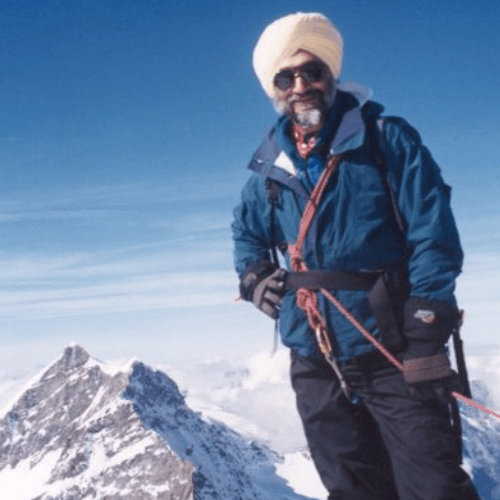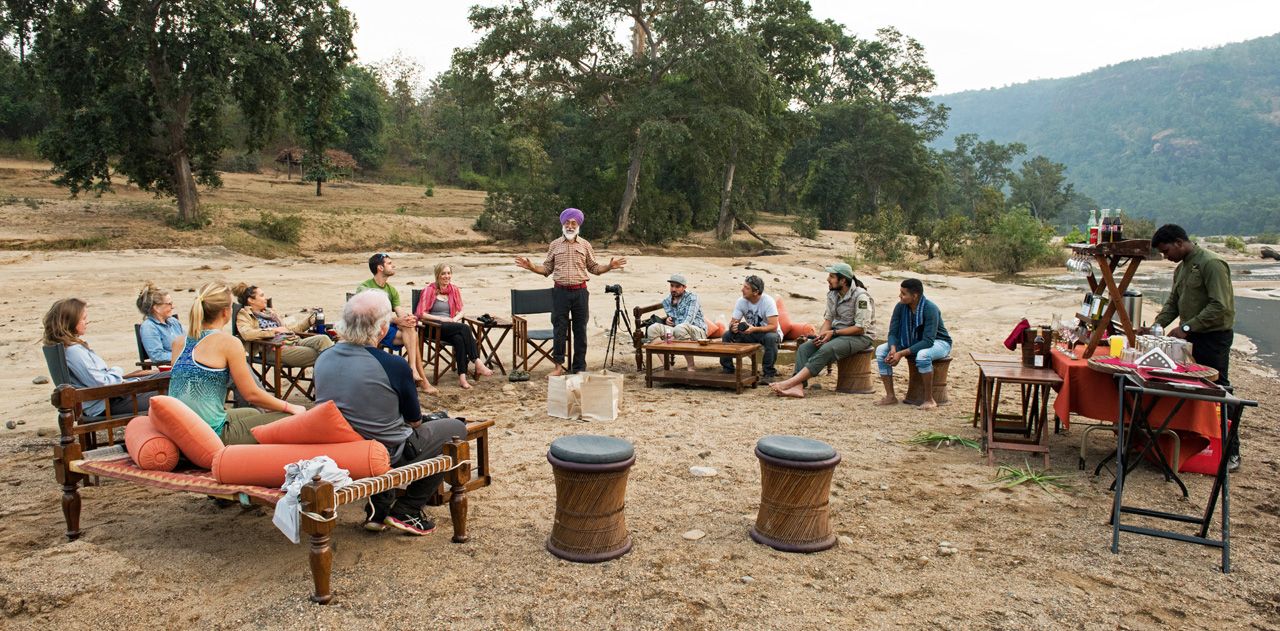Blog
Wide Oyster Magazine Interviews Mandip Singh Soin

Netherlands’ based international travel magazine Wide Oyster recently interviewed Mandip Singh Soin about his journey, his passion for exploration and his concern for the planet. Given below is the republished version. The original article is available here.
For Love and For the Planet: Reisheld Mandip Singh Soin
By Marco Baneveld
There are more and more voices that traveling is bad for the environment. We believe that traveling in the right way makes the world a better place. In the words of David Attenborough : “No one will protect what they don’t care about; and no one will care about what they have never experienced.”
WideOyster highlights travel heroes who are committed to the world. In this edition Mandip Singh Soin, explorer and environmentalist.
When I met Mandip in a bus in Salta, en route to the Juramento River (for those who raft: a number 5), we immediately got talking. An incredibly nice man, full of puns and easily recognizable by his colorful turbans. I knew a lot that I was laughing with a fairly remarkable person. But I would soon find out.
Over the past four decades, Mandip Singh Soin, an Indian Sikh, has climbed, skied, jumped parachute and immersed himself in a thousand other adventures on all seven continents. “My wanderlust started early,” he recalls. “I was 15, climbed into the Himalayas and was overwhelmed by adventure and nature.” He turned his passion into his work.
His company Ibex Expeditions was born in 1979. Ibex organizes tailor-made adventures and has received many international awards over the years. Just like Mandip itself, by the way. This year the company is celebrating its 40th anniversary.
His experiences all over the world made him more and more involved in protecting the nature that he loves so much. And with success.
Mandip is the only Indian who has received the NESS Award from the Royal Geographical Society, UK . He also received the prestigious Tenzing Norgay Adventure Award from the hands of the President of India. He is the founder of the Ecotourism Society of India and a Fellow of the Royal Geographical Society, UK and the Explorers Club, USA . He is a man to be reckoned with. Big time.
In 2015, he was awarded the Citation of Merit by the Explorers Club for his work on mountaineering on six continents. Other recipients of this award include Jeff Bezos, John Hemming, Gilbert M. Grosvenor, Lord Robert ST Chorley, Nigel N. Winser, Naomi Uemura and Robert D. Ballard.
We were allowed to ask him some questions about how traveling can do the world well and how it can help preserve our beautiful planet for future generations.
Mandip, why are you traveling?
“For all the amazing and different landscapes, the bewildering architectural styles and the fantastic types of people living in this world. The peculiarities and eccentricities of people and cultures around the world. It makes this planet a very interesting place to travel. ”
What did it bring you?
“A better understanding of people, myself and also a better understanding of how the planet ticks.”
How does travel define you as a person?
“There are two types of journeys: the inner journey and the outer journey. Traveling opens windows in the mind. It has taught me to be empathetic and at the same time it has made me realize that I have to contribute to a better world.
Do you think there is a ‘good’ way of traveling and a ‘bad’ way of traveling?
“The right way is to understand and open up to cultures and people you visit. But your choice of travel also counts: choose sustainable hotels, lodges and tour operators, which also respect the locals and give them back to the community where the journey goes. Also try to donate something to support nature and culture, such as the WWF or local non-profit organizations for the environment, cultures or education. There is so much to do, so little money and every drop counts. Bad tourism does nothing of the above and only goes for itself and the cheapest, without having to worry about the impact of tourism. Bad tourism is not about attracting you to what your impact is and just taking it. ”
You are committed to the environment. Can you explain that?
“Well, first we set a good example with Ibex. Just to feel good about it and to care for the environment. For example, we do not make campfires with wood from the environment during our Himalayan expeditions. There is not much firewood there and what there is is primarily meant for the local communities, we think. Nowadays we burn less and less on open fire because of the CO2 and we use solar energy to cook, shower and light to reduce our impact.
We soon started making recommendations to other tour operators. Now we do this in India on a national level through the Ecotourism Society of India. There is so much to do. ”
Why are it the more adventurous journeys that contribute to nature conservation?
“If tourism is the arrow, adventure travel is the arrowhead. These trips like to go to areas where normal tourism does not dare yet. They are often unexplored areas. Tourism then brings jobs, money and the exchange of knowledge. Adventurous travel organizations are often a pioneer in the field of nature protection. Because nature is the playground that people love so much. You don’t want to ruin that. In the words of David Attenborough : “No one will protect what they don’t care about; and no one will care about what they have never experienced. ”
However, there is a side note. Because this type of travel can also be done irresponsibly and it will be damaged more than it does well. So we have to keep making wise decisions. ”
What would your advice be for people who are concerned about the impact of travel?
“Be more aware where you are going and how you are traveling. Respect cultures and people. Pay attention to which travel agency you are traveling with and consciously choose sustainable accommodation. See if you can possibly compensate the CO2 for your flights. Traveling can be a powerful tool to protect this planet and create a better understanding between people. It is ultimately your choices that make the difference. ”
With Mandip to the heart of India
There is probably no better way to discover India than with Mandip Singh Soin. For the 40th anniversary of their company, Mandip and his wife Anita lead an expedition to the heart of India, in the footsteps of Captain James Forsyth, an explorer who served in the Indian army at the end of the 19th century. The journey takes you to the forests of Satpura in the state of Madhya Pradesh. You stay in luxury camps and colonial lodges and immerse yourself in art, culture, nature, wildlife and recipes from the kitchen of the Nawab family. A great walking experience through the Satpura Tiger Reserve. You also visit Bhopal, Mandu and Maheshwar where you stay in the Ahilya Fort, the private palace of the former Holkar dynasty.



